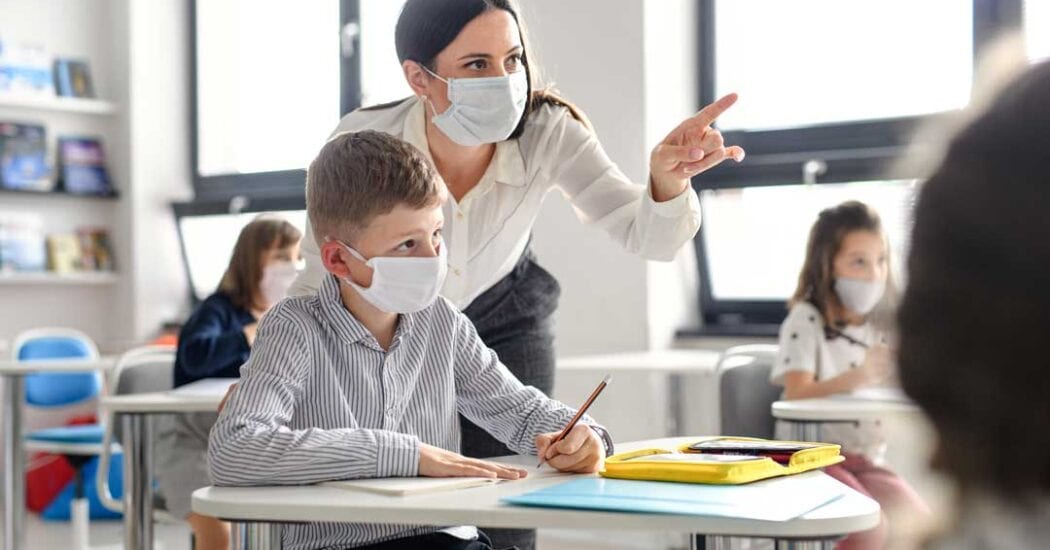
KJIPUKTUK (Halifax) – During the pandemic stories depicting frontline workers as heroes have been numerous, but educators have been somewhat forgotten.
Covid-19 has increased the challenges, and pressures on teachers, professors, and parents.
As a student who started teaching during the pandemic, the complications of the pandemic are obvious to me. Not only are educators responsible for covering the required curriculum during the shift to online delivery, they also have to support the mental health of their students, change their teaching strategies to adapt to online learning, and through all of this ensure that everyone remains safe.
Teachers, often the first to face criticism when disruptions occur, have been essential in keeping Nova Scotia a safe haven from the pandemic and maintain a sense of normalcy.
When the pandemic first hit in March of 2020, no one was prepared for it. School teachers and post-secondary teachers had to transition to teaching online, adapt their lessons to weekly work packages, and hold online video sessions for questions and lectures. In my case this shift happened in the last two weeks of my undergraduate degree, and workloads were overwhelming.
In September public schools reopened, and parents were faced with the difficult decision whether or not to send their children back to school.
Teachers meanwhile were faced with many new challenges, protocols, and regulations. Activities like group work, reading groups, and sharing materials between students were completely off the table. Desks had to be rearranged to allow for adequate distancing – removing items like couches, floor mats, bookshelves, and others. Masks had to be worn most of the day, sanitation became very important, and students were instructed to interact in completely new and different ways so as to avoid close contact.
Homeschooling the only option
Despite all this, some families were not able to send their children back to school.
Clark MacIntosh’s family decided to homeschool their two kids, because several members of their family are immune compromised and at a higher risk of complications if they were to contract the coronavirus. They were also very concerned about the toll returning to the physical classroom would have on the mental health of their children.
This was not an easy decision for the family.
“We had very little to go on in terms of understanding what the school day would look like from the Nova Scotia government plan, which created a great deal of anxiety for us and our kids. Our children’s school was already understaffed and underfunded prior to the pandemic, with poor ventilation, non-potable water and difficulty maintaining the cleanliness of washrooms,” MacIntosh said.
“Homeschooling and having the opportunity for our children to learn and engage with each other was safer and seemed the best option for their mental health,” said MacIntosh.
It’s been difficult.
Initially, their family was told that they would receive accommodations from the Department of Education that would have allowed their kids to remain enrolled in the public school system while completing the schoolwork at home.
“My partner and I both have time-consuming jobs at the best of times, and the added challenges of the pandemic has meant completely reorganizing the operating structure of a business and a non-profit organization while planning school for kids in two different grades. We have also had to pull one child from immersion as we aren’t fluent enough to teach in French” Clark said.
“Balancing their schoolwork and family time has been very draining both emotionally and physically. My energy levels have been incredibly low and I’m constantly trying to prevent burnout while still maintaining that work/school/life balance. That said, homeschooling has been great for my physical health in other ways- we haven’t had any colds or flus entering the home.”
Juggling kids and teaching duties
A public school teacher told me that as a parent one of their most difficult challenges was to juggle the needs of students while also helping their own children log on to online meetings and support them in getting their work done.
“It was definitely hard to adjust at first. I second-guessed everything I was doing, wondering if this was breaking protocol or if it was ok,” the teacher tells me.
“Trying to stay upbeat and positive for my students when our cases started rising again before Christmas was hard. We were all feeling the anxiety as the second wave seemed imminent. No one wanted to go back to online learning again,” they said.
The pandemic has forced educators, parents, and students to adapt at a moment’s notice. Uncertainty has been paramount. Will the cases rise so high again that we have to shut schools? What will I do with my own children if schools close for students but my partner and I still have to report to work and deliver online lessons, the teacher told me.
Personally, it has also been difficult to maintain the motivation to continue teaching and learning. It can seem trivial to memorize facts, write assignments, write tests, or do presentations when people are risking their lives to constrain the pandemic, families are separated by borders and case numbers, and social gatherings are impossible.
On the other hand, critical thought is what we need, now more than ever. And that’s where education comes in.
To quote Martin Luther King, “the function of education is to teach one to think intensively and to think critically. Intelligence plus character- that is the goal of true education.”
Check out our new community calendar!
With a special thanks to our generous donors who make publication of the Nova Scotia Advocate possible.
Subscribe to the Nova Scotia Advocate weekly digest and never miss an article again. It’s free!



